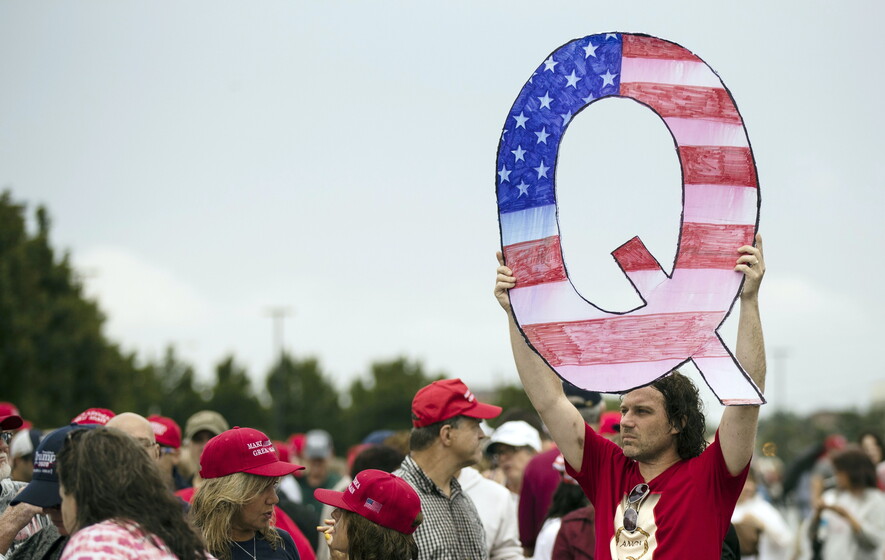North’s troubled past linked to rise in conspiracy theory beliefs
CONSPIRACY theories are taking root in the north as a result of the region being affected by past state secrecy and collusion, it has been claimed.
Growing online engagement with conspiracy theories such as anti-Covid vaccination beliefs is occurring across the world since the pandemic, but Northern Ireland’s unique history has left it fertile ground for fringe ideas to take hold, an academic has warned.
Dr Tristan Sturm, senior lecturer of geography at Queen’s University Belfast and an expert in conspiracy theories, told The Irish News many such beliefs are often due to a “deep distrust in government” and that many beliefs are creating “alienation” in families as people fall down online rabbit holes.
Along with vaccine conspiracies, other extreme theories – often originating in the US – that are attracting believers on this side of the Atlantic include the far-right Q-Anon, backed by many supporters of former US President Donald Trump, and the ’15-minute city’ urban planning concept that has attracted protests in the UK by people who fear it is linked with an authoritarian plot to trap and monitor people.

The rise in such theories has even seen a dating app recently created for conspiracy theorists in Germany, but Northern Ireland’s troubled past has left many here vulnerable to being taken in by peddlers of often dangerous beliefs.
“Everyone has a belief in what we might consider a conspiracy, if you dig deep enough, you’ll find one,” said Dr Sturm, who is originally from Alberta, Canada, and has written extensively on the global network of conspiracy theory beliefs and their manifestation in modern politics.
“Belief in a nefarious and controlling ‘elite’ are common and have a kernel of truth but it is the mechanisms of how elites control us, for example 5G, and a resulting perception of victimisation that leads to conspiracy theories.
“That perception of personal impact may compel people to engage publicly, whether online or in the material world through protest or as we saw on January 6 at the Capital Building, violently.”
Satanism
Dr Sturm said that in Northern Ireland “there is a history of conspiracy theories resulting from the Troubles”.
He continued: “State secrecy has spurred this on, as some of those claims that were often dismissed as conspiracies actually turned out to be true, such as collusion with paramilitary groups.
“Then you have revelations from British military ‘black ops’ officers that they deliberately stoked fears of demonic possession and Satanism in order to link them with paramilitary activity.
“Among the dominant reasons for beliefs in conspiracy theories are a feeling of powerlessness, and experience of atrocities, both of which have been felt by communities in Northern Ireland.”
Covid allowed for a merging of varied groups against lockdowns, and later vaccines, Dr Sturm said, describing his observation of a rally in Belfast’s Ormeau Park in 2020.
“I saw it wasn’t just from right-wing groups, but there was a wide range, from wellness practitioners and those into spirituality, to others who have a clear distrust of government.”
Speaking of the impact on people and loved ones through conspiratorial beliefs Dr Sturm said: “It’s definitely driving familial alienation, and there are even support groups available for people who are emerging from that world.
“Conspiracy theories lead to the creation of social spaces online, that once you’re in, they become your new friendship group, which can be incredibly difficult to detach from.
“Obviously, Covid drove a lot of this as people looked for social interaction during lockdown, and it lasted long enough to cement belief systems.”
He added: “It can take years of therapy to rewire your brain, in the worst cases.”


